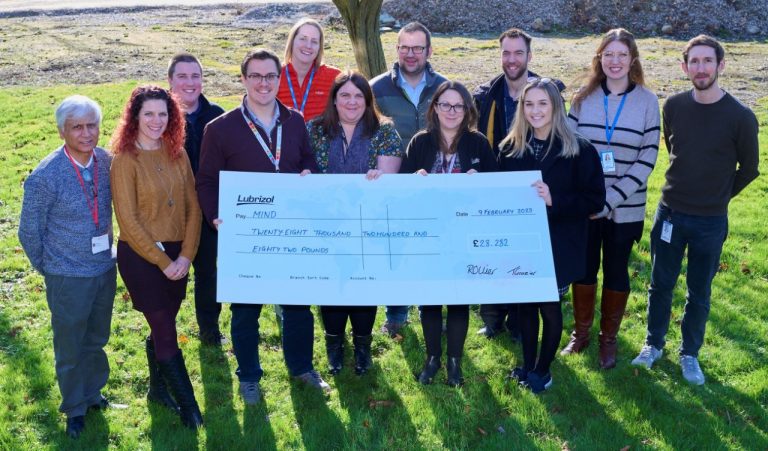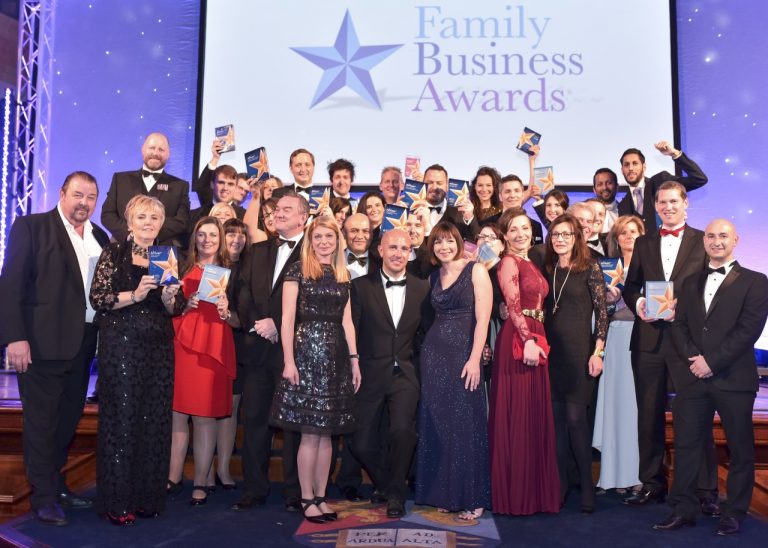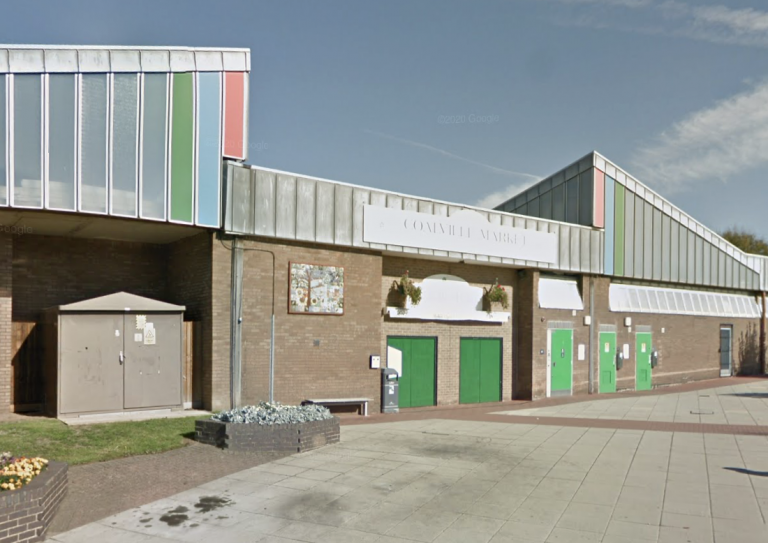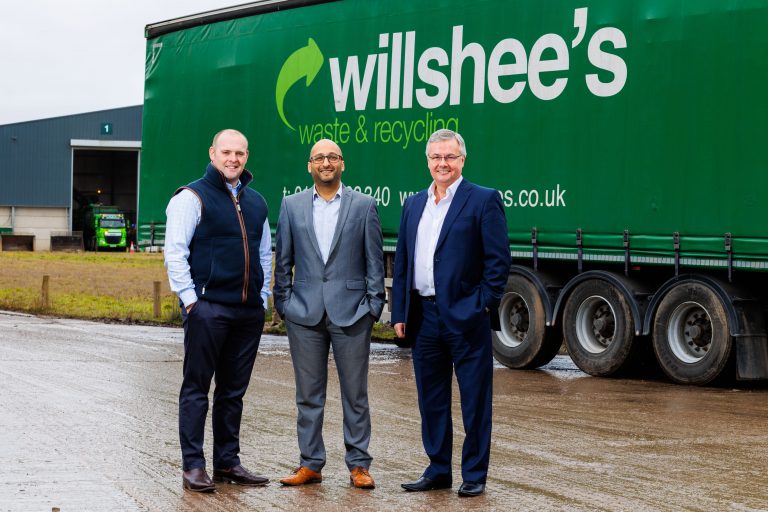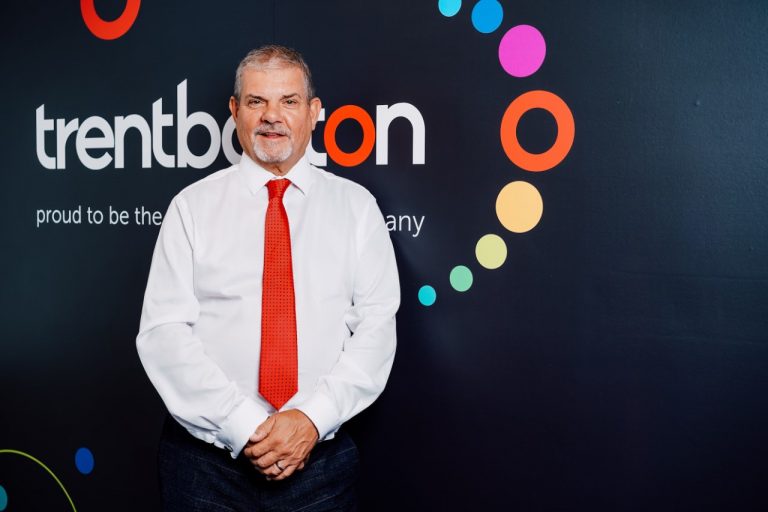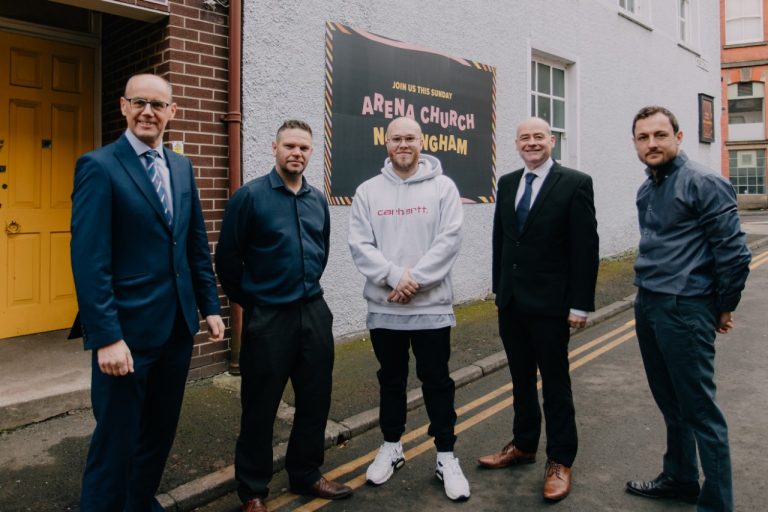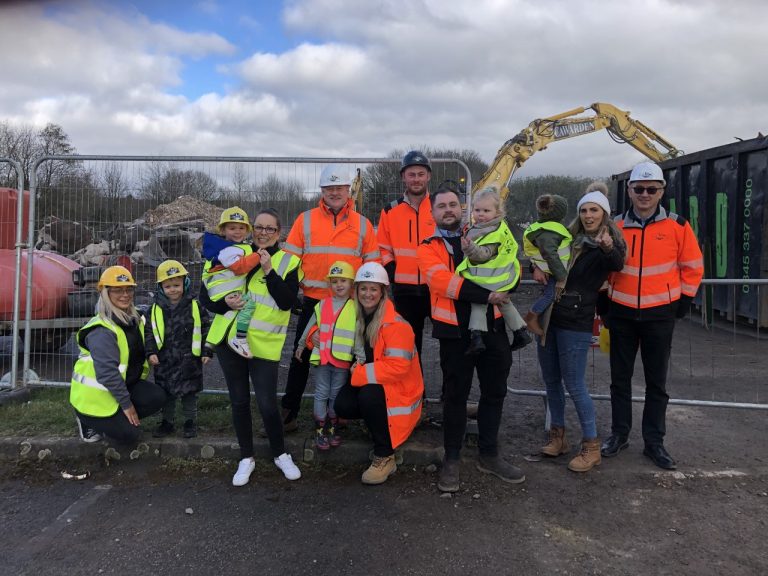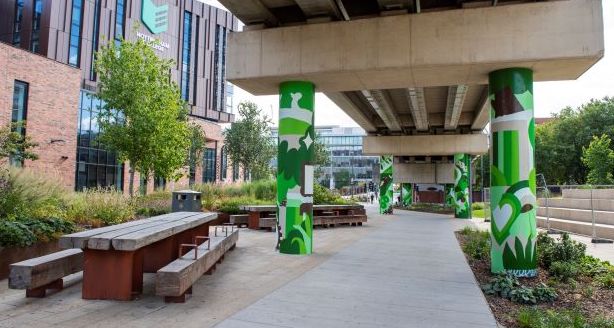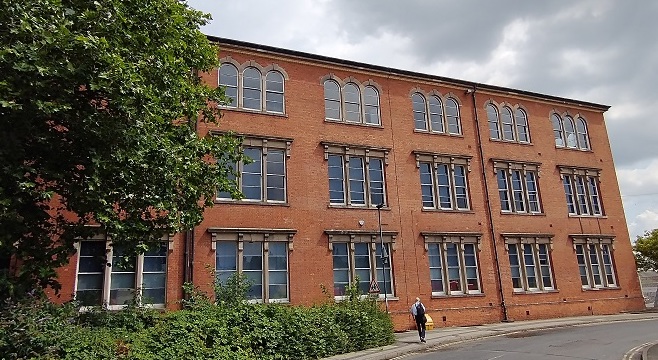Derbyshire science company gives over £28,000 to Mind after holding its own Olympics
Entry deadline extended for Midlands Family Business Awards 2023
The deadline for the UK’s only independent, not-for-profit annual awards for family businesses, the Midlands Family Business Awards, has now been extended until 20th March.
Returning for 2023 after a three year break due to the pandemic, the awards is now entering its second decade to celebrate and shine a light on our region’s great family businesses.
Organised by The Wilson Organisation – a third-generation Nottingham-based family business – the awards are the Midlands’ only initiative dedicated to celebrating and recognising the success, achievements and innovations of the region’s family run and owned businesses.
With 10 categories to choose from, there are accolades suitable for businesses of all sizes, across all sectors. Categories include Family Business of the Year, Best Small Family Business, Rising Stars, Employer of the Year, and Director of the Year. There is also Fastest Growing Family Business, Construction and Property Excellence, Manufacturing Excellence and Digital Excellence.
New for 2023, the organisers have added the Sustainability Award, which will highlight the very best of the region’s environmentally-minded family businesses.
Submissions are judged by an independent panel led by a family business leader and all finalists are entered into the People’s Choice Awards, which is decided purely by public vote.
Move Against Cancer is the chosen charity that the awards will be supporting this year, with all profits from the awards evening donated.
The black-tie awards ceremony is being held on 29 June and will be a summer event held at Kelham Hall near Newark.
Having previously attracted over 300 guests, including sponsors, judges and finalists, the evening is a real celebration of the achievements of family businesses and is the ideal opportunity to bring teams together to enjoy an evening hearing positive stories and meeting other family-owned businesses.
Group Managing Director of The Wilson Organisation and awards co-founder, Charlotte Perkins, said: “Myself and my sister Annabel are so pleased to be bringing back the Midlands Family Business Awards, after a three-year break.
“It’s fantastic to have our current Family Business of the Year, The Wilkins Group, as our headline sponsor. Thanks to Justin and the Wilkins family, we’ll see them hand over the crown to their successor, which will be a very special moment to start our second Awards decade.
“We have taken the opportunity to mix things up a bit. We have always held the awards ceremony and dinner in November but decided that a summer event would give us the perfect opportunity to have our celebration in summer-style.
“Putting your family business forward for an award can reap a host of benefits and rewards beyond the trophy and title so I encourage as many as possible to get involved and submit an application.
“There are so many family businesses that are having a remarkable impact on the Midlands region and beyond, and we can’t wait to see what brilliant work they’ve been doing. I wish all the businesses who enter the very best of luck!”
All entrants for the awards will receive a free annual membership for online platform Family Business Futures. Created in 2020 by The Wilson Organisation to support the awards, it provides a unique opportunity to learn from family business experts, and to discuss family and business issues in a safe online environment, with a like-minded network.
Businesses encouraged to set-up shop in vacant Ilkeston and Long Eaton retail units through Golden Hello grant scheme
Former market hall site to be transformed for leisure use
Plans to transform Leicester’s Pilot House approved
Rolls Royce reveals Raynesway site redevelopment plans
East Midlands Railway returns to UK ownership
Nottingham Venues host ‘beam’s Great Supplier’ showcase
Midlands inbound deals hit 15-year high as overseas investment gathers pace
Waste and recycling business secures multi-million-pound funding package to drive expansion plans
6 things business leaders can do to create a safe workplace
trentbarton’s MD retires
Revenue up as profits slip at Travis Perkins in challenging year
Nottingham Trent University research project to give electric vehicle batteries a ‘second life’
Nottingham Trent University (NTU) is part of a £4.5 million research project to establish a process to recycle or reuse electric vehicle batteries to help prevent up to nine million tons of battery waste per year going to landfill.
A £582,000 grant has been awarded to the university’s Advanced Design and Manufacturing Engineering Centre (ADMEC) as part of the European-wide REBELION project which looks to give used electric vehicle Lithium-ion batteries a ‘second life’ or recycle them in a more efficient way.
Research shows that with reconditioning, the majority of electric vehicle batteries would be able to last another ten years after their capacity has fallen below 75 per cent. But the majority are sent to landfill and many of the first generation electric vehicles will soon reach their end of life.
The project – which is supported by the European Horizon programme and incorporates 11 organisations from across Europe – will also establish how recycling electric vehicle batteries could create a major source of Lithium-ion on the continent.
The main aims of the project include developing:
- Technology to sort used batteries into those suitable for a ‘second life’ and those which should be recycled
- Automated methods to dismantle batteries so that they can be recycled more efficiently
- A safety protocol for the recycling and reusing process and designing safety box containers for safe battery transportation and storage
- A standardised labelling system to provide data on second life batteries
- An analysis of how well the proposed models of recycling and repurposing perform
- A roadmap to the market for individual and joint business models
The NTU team will develop the information communication technology (ICT) platform and infrastructure. The team will also develop methods in relation to traceability of batteries, digital battery passports, ecolabelling and the calculation of eco-cost and eco-savings.
The team will also contribute to repurposing second life batteries in lighting products.
Partners in the project include Universitat Politechnica de Valenica, Accurec-Recycling, Sig de Raee Y Pilas Sociedad Limitada, Ona Product SL, Universidad Nacional de Educacion a Distancia, University of Birmingham, Fondazione Icons, Erion Energy, Erion Compliance Organization Scarl and Volkswagen Group Italia SPA.
Professor Daizhong Su, head of ADMEC which sits in NTU’s School of Architecture, Design and the Built Environment (ADBE), said: “With the increased volume of electric vehicle batteries coming towards their end of life, it’s imperative that there’s a quick and accurate way to predict a battery’s future life in order to maximise second-life applications.
“Recycling is the most environmentally-friendly way to deal with batteries after their second life and has the potential to turn them into a major economic resource in Europe, with a value of up to £23 billion per year, as the raw materials they contain can be used for further manufacturing.
“This is an exciting project which has the potential to make the electric vehicle industry even more sustainable and help prevent up to nine million tons of battery waste per year going to landfill by 2040. We look forward to working with our partners to help create sustainable solutions for many of the future challenges of the electric vehicle industry.”
G F Tomlinson supports local Nottingham community with access to central sanitation facilities
As part of the company’s commitment to delivering social value, Midlands contractor, G F Tomlinson, has supported Arena Church to deliver sanitation facilities at its Nottingham City Centre premises, which will be open in the near future.
The church, which is based on Western Street in the Hockley area, currently provides refuge, shelter and hot refreshments for vulnerable Nottingham residents who need it most.
G F Tomlinson has worked with local sub-contractors alongside pastor, Jono Kirk, from Arena Community to convert previously unused space into a shower and washer / dryer facility for vulnerable Nottingham residents to use who lack access to basic sanitation facilities.
The vital additions will act as an extension of Arena Church’s mission to ‘Go, Grow, Love and Serve’ in Nottingham City, and facilities will be on hand ready for when the church launches its new ‘Care for a Coffee’ initiative once funding is secured.
‘Care for a Coffee’ will provide warm, safe spaces for vulnerable people to get a weekly hot meal, with an option to clean and dry clothes and make the most of a ‘shower hour’.
Kevin Dodds, construction director at G F Tomlinson, said: “We are great advocates of the work that Arena Church do for the local area, and are proud to have been involved in the delivery of vital sanitation facilities in the building, helping to support vulnerable communities.
“We hope those who need it most are reassured that there is a safe space where they can spend time, have a hot meal and use the shower and washing facilities.”
Jono Kirk, pastor at Arena Church, said: “We at Arena Church, Nottingham are so thankful for the work that G F Tomlinson and all subcontractors have carried out, transforming previously unused space to make an incredible difference to the lives of people with no access to such facilities.
“We believe this will act as a springboard in Arena Church Nottingham’s mission to serve the city and will really help in bringing our new ‘Care for a Coffee’ vision to life. Without G F Tomlinson and all they have done, this wouldn’t be possible. A big heartfelt thank you to all involved.”
G F Tomlinson recruited the services of Prime Flooring Solutions, Amptron Electrical Services, Browns Builders Merchants, and SV Timber to work alongside them to deliver the works at Arena Church, which started in mid-January and completed in February.
Despite soaring energy costs, only 29% of UK manufacturers consider net zero to be a priority
Energy prices are negatively impacting the majority of UK SME manufacturers, according to the latest Manufacturing Barometer survey by SWMAS. But, with the government’s ambitious target to achieve net zero by 2050, are SMEs on course to succeed?
This quarter’s statistics indicate half of respondents (51%) see net zero as a positive expansion for UK manufacturing. However, less (42%) are confident this will actually be beneficial for their individual business.
Almost three quarters of manufacturing firms have said they are already working towards net zero (73%), although only a very small number of these businesses (2%) actually know the carbon footprint for the products they supply, and just 3% have a detailed carbon footprint ready for their organisation. 50% of manufacturers have started, but are yet to formally establish any metrics, and an additional 23% have so far only attained a basic carbon footprint for their organisation.
Nick Golding, Managing Director at SWMAS, says: “Profitability remains a challenge for most firms, particularly with the current energy crisis which is showing no signs of waning. It is understandable that for most, implementing the new net zero standard isn’t a priority with other challenges being faced, particularly when planning and implementing a scheme to neutralise their carbon footprint will cost additional time, resources and money.”
Only 37% of respondents have actually taken a pledge for their business to achieve net zero but, encouragingly, three quarters of these firms aim to reach this at least 10 years before the government’s 2050 target. On the other hand, over 70% of the firms questioned reported that the transition to net zero is not a current priority for their business.
There are still many barriers being faced by manufacturers dominating their current and future business focuses. As many as 64% do not think the benefits outweigh the cost of implementing low carbon improvements and almost half (44%) have said there is nothing driving them to prioritise net zero over other issues in the business. This is further backed up by the fact that over three quarters of responding businesses said none of their customers have asked them to provide their carbon footprint data.
How will carbon footprint credentials benefit UK manufacturers? Almost half (48%) have said they think being able to promote their net zero ambitions will help them win future work. Furthermore, 27% believe this would attract potential employees at a time when the competition for skilled workers is at an all-time high.
Nick adds: “These findings indicate some optimism from UK manufacturers despite the ongoing challenges around price increases, supply chain disruption, and skills shortages. It’s clear that many firms see the benefits of achieving net zero, but there are a number of challenges that could be preventing their progression.
“There are lessons for policymakers to consider, particularly in relation to simplifying planning requirements for onsite energy systems such as solar and wind as well as incentives for these technologies to support the manufacturing transition towards a net zero future.”


